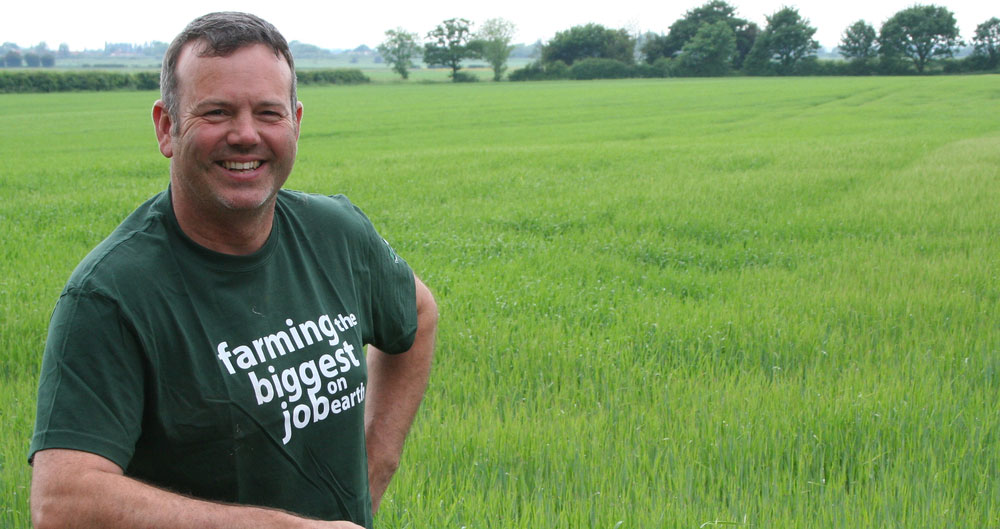Globally, we need to act. The United Nations' Framework Convention on Climate Change (UNFCC) is talking about this, but action is ponderously slow. Agriculture is clearly identified as the sector most vulnerable to climate change. We are seeing the effects here in the UK, but in some parts of the world these effects have been felt for many years. So it’s important we show leadership.
For this reason our President, Minette Batters, announced at the Oxford Farming Conference in January, the NFU's the ambition for UK agriculture to achieve ‘net zero’ by 2040. In other words, by this date our aim is for the industry to have ceased contributing to the emissions that cause climate change.
Part of this ambition centres on the role that agriculture and land management can play in mitigating the effects of climate change by absorbing the carbon dioxide in the atmosphere that leads to the greenhouse effect. This is a very exciting prospect for farming as we are the only major industry that can offer this possibility. Without getting too far ahead of ourselves, long-term global cooling is not out of the question, but this needs more than just farming to play its part.
On the back of this ambition, the NFU and the Sustainable Food Trust held a joint conference in Gloucestershire in early July, which I attended. It was an eclectic mix, but one with a common aim – to highlight how can we feed ourselves without causing any more damage to the planet and still make a living.
In hindsight, it was a real achievement for the NFU to share a stage with Extinction Rebellion, but it is vital that these conversations happen. At the end of the day we all have a common goal – whether you agree with the methods of achieving it or not.
One thing is crystal clear though and that is that everyone will need to make changes in the way they live their lives. Compromises will be needed, not just in our expectations, but in our ideals.
There will be no magic bullet and no single answer, but farming will have an important role to play in the national ambition to achieve net zero by 2050. We are acutely aware of the challenge and the importance of our industry taking the lead. We must do the analysis, identify solutions and steer their implementation. If we don’t, others will, and that doesn’t always work out in ways that help us on-farm or help deliver results.
For that approach to work though, we all need to be listening to others, no matter how extreme we may consider their views.
So what might that look like on-farm? Clearly understanding our current impact is a starting point. We can then look at actions we can take, with efficient productivity being an obvious gain that we can all buy into. Choices around cultivations, management of hedgerows and ruminant diets are just a few things we can do unilaterally.
However, for me, the exciting thing is the joined-up thinking that could stem from this. If the marketplace doesn’t recognise our achievements, if trade ends up undermining our efforts, if scientific advances aren’t sorted and if the consumer ignores the challenge, then as a country we won’t achieve our ambition.
The net zero challenge has the potential to really highlight and enhance the vital role of farming and landscape management, largely carried out by farmers, in ensuring the health and wellbeing of our only planet and our population.
Theresa May's parting shot was for the country to be net zero by 2050. Agriculture's ambition is already ahead of the game.
